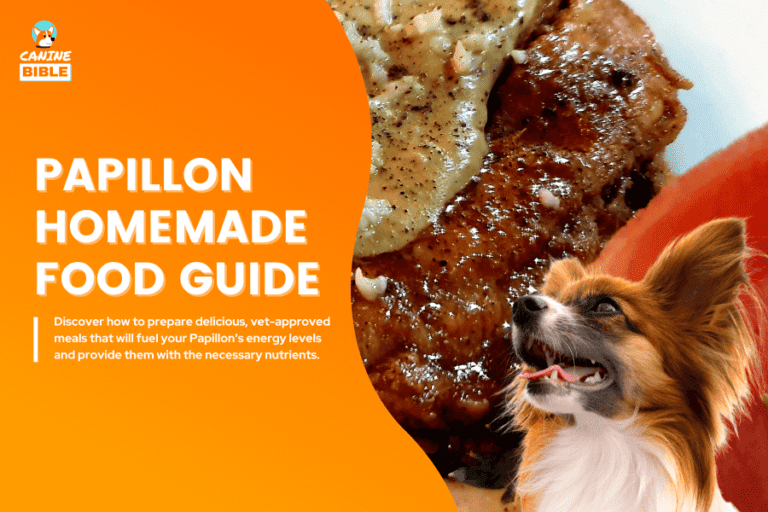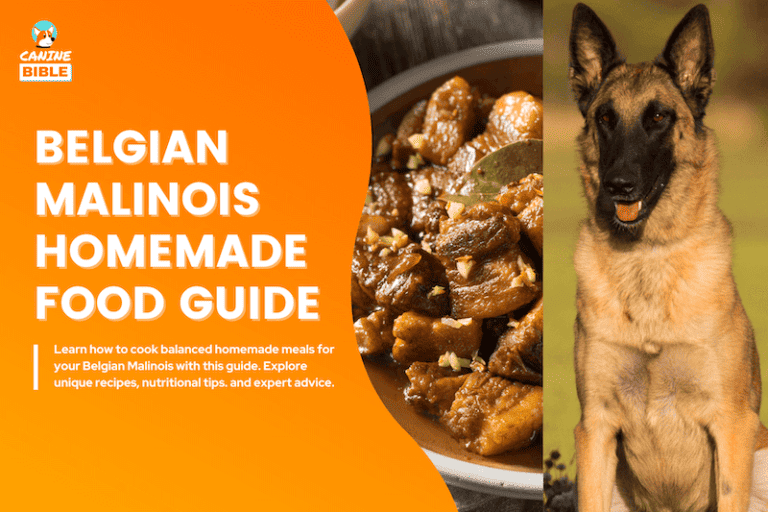The Complete Guide to Dogs Eating Lamb: Good or Bad?
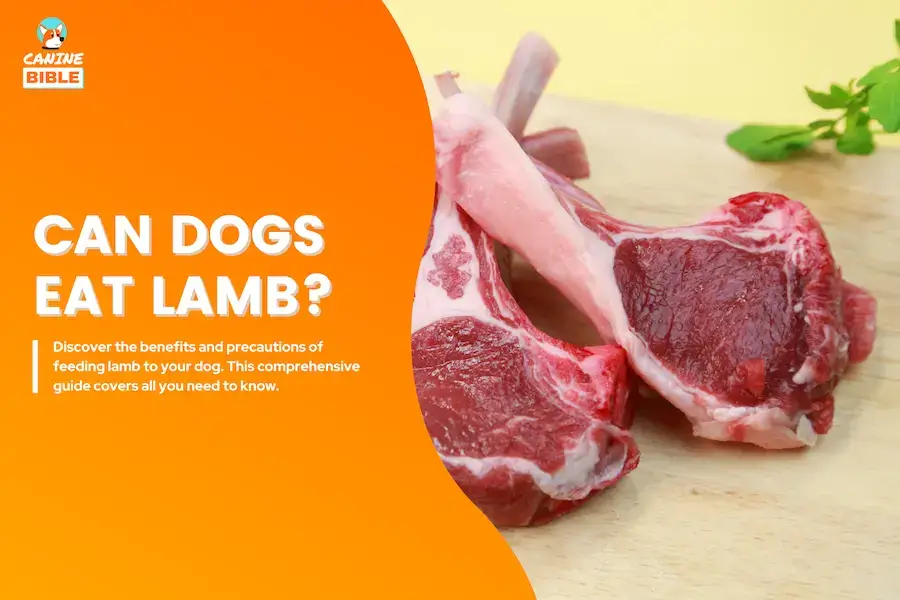
Canine Bible is reader-supported. We receive affiliate commissions via some of our links. This doesn’t affect rankings. Learn more.
Yes, dogs can safely enjoy eating lamb meat or lamb meat-based products. Lamb is high in protein and other essential nutrients that help keep your dog’s coat healthy and promote strong muscles and bones. It is also leaner than other meats, making it a good choice for dogs trying to maintain a healthy weight. However, whether dogs can eat lamb involves more than acknowledging its nutritional benefits. It’s crucial to consider how lamb fits into a balanced diet for a dog, considering any potential health concerns, preparation methods, and the dog’s individual dietary needs.
Note: It’s worth noting that sheep and lamb are the same animals. The difference is that lamb is the meat of a young domestic sheep, typically between 4 and 12 months old. Lamb meat is more tender. Meat from a sheep over 12 months old has more flavor and is called mutton.
Is Lamb Good For Dogs?
Lamb is a red meat and is perfectly safe for dogs to eat. Lamb is as beneficial as other meats, such as beef and chicken. In some areas, lamb is more nutritious than most traditional meats dogs eat. Lamb provides more energy, vitamin A, calcium, magnesium and iron than beef. Lamb contains higher amounts of vitamin B12 and vitamin B-9 (folate) than chicken.[1],[2]
Lamb meat is rich in essential amino acids and dietary fats that help sustain energy levels. Furthermore, red meat provides a lot of vitamins and minerals that are beneficial for the development of muscle in your dog, as well as for the health of its coat and skin.[3] Additionally, a study showed that grain-lamb meat dog foods are more digestible than grain-chicken meat and grain-free dog foods. The results of digestibility trials indicated that the grain-lamb meat foods showed the highest digestibility of dry matter, organic matter, and crude fiber, which is good for their gut health.[4]
Lamb also has one of the highest digestibility scores among meats, with a score of 71.5, beating meats like beef.[5] Another study published in the Canadian Veterinary Journal showed that dogs prefer lamb over chicken, liver and horsemeat.[6]
Can Dogs Eat Lamb?
Yes, dogs can safely eat lamb. According to our ingredient analysis and dog lamb consumption studies, lamb meat is a well-rounded source of protein, amino acids, and other vital vitamins and minerals dogs need to thrive. Lamb is often considered a premium source of protein, and most dog food manufacturers sell lamb recipes and treats as novel protein for dogs due to its hypoallergenic nature.
When you cook lamb for your dog, do not add seasonings or spices, as those can create gut problems. If your dog is trying lamb meat for the first time, gradually introduce it to his diet over a few days and monitor his reaction. It’s also advised to buy lamb meat from grass-fed or free-roaming livestock or use dog food formulas that use lamb meat of this quality.
Can Dogs Eat Raw Lamb Meat?
Dogs can eat raw lamb meat and enjoy the benefits of a BARF dog diet. As opposed to cooked lamb meat, the texture of raw lamb meat is denser, so you will want to cut it into little chunks so your dog can easily chew and digest it. You should also consider removing all the skin fat and fat content and only serve lean lamb meat, as lamb contains more saturated fat than other red meats. You need to understand other risks associated with feeding raw food to dogs before feeding raw lamb to your dog. Raw lamb may not be safe for all dogs. Raw meat is harder to digest than cooked meat and may not be good for dogs with digestive issues or sensitive stomachs.
Lamb Meat Benefits For Dogs
According to the USDA, 100 grams (or about 4 ounces) of lamb contains the following nutrients:
Here are a few more reasons why lamb is good for dogs:
High In Healthy fats
Ruminant trans fats are found in lamb tallow. Ruminant trans fats are believed to be healthier than trans fats found in processed foods. The most common ruminant trans fat is conjugated linoleic acid (CLA).[7]Several health benefits are associated with CLA, including reduced body fat mass, inflammatory system, blood sugar regulation and more.[8]
Novel Protein Source:
If a dog has not been exposed to lamb, it can serve as a “novel protein.” Many dogs develop allergies to proteins they are frequently exposed to. Lamb may be better for dogs suffering from food sensitivities or allergies caused by common protein sources such as beef or chicken.
Packed With Vitamin B
Vitamin B6 regulates glucose levels, red blood cells, the nervous system, and hormones and enhances the body’s immune response and niacin synthesis in dogs. Lamb is among the foods with the highest Vitamin B6 content.[9] Lamb also contains vitamin B12, which is essential for intestinal health.
Muscle Maintenance & Growth
Lamb is an excellent source of high-quality protein, which is essential for maintaining and growing dog muscle tissue. Protein plays a crucial role in almost all biological processes and is especially important for active dogs.
How to Safely Feed Lamb to Dogs
When feeding lamb to your dog, it’s best to follow a few simple guidelines to help keep them safe:
Some of the ways you can safely feed lamb to your dog include:
If you want to feed your dog lamb, we recommend feeding fresh lamb food made from human-grade ingredients. Ollie offers the best lamb dog food recipe. Ollie’s Lamb Beef recipe is personalized to your dog’s dietary needs and goals and is made by registered veterinarians who follow the standards set by AFFCO.
Is Lamb Bad For Dogs?
Lamb is not inherently bad for dogs; when served properly, it can be a healthy part of their diet. As long as dogs eat lamb meat in moderation, they should be fine. However, there are some cases where lamb could be bad for dogs. For instance, some cuts of lamb contain fatty meat and can irritate your dog’s stomach, leading to diarrhea, vomiting, weight gain, and, in extreme cases, pancreatitis. For this reason, you should remember to drain as much fat as possible when cooking lamb at home.
It’s also important to know that some dog food manufacturers will use “lamb meal” (meat and other animal by-products not used for human consumption). While there is nothing inherently wrong with rendered meat (“meat meals”) for dog food, feeding our dogs is not a preferred choice. If you want the best lamb for your dog, look for human-grade lamb recipes or cook it at home.
Can Dogs Eat Lamb Bones?
Probably not. While there are some instances where you could feed lamb bones to your dog, bones often pose more risks than benefits for your pup, so we always advise against giving your dog bones. If your dog chews lamb bones, pieces can be broken off, which can easily cause obstruction and damage to the gastrointestinal tract.
While a dog’s stomach can typically break down bones, and you technically give bones to your dog, it can still irritate its digestive tract. If you choose to feed lamb bones to dogs, make sure you follow these general guidelines for feeding them safely:
Can Dogs Eat Cooked Lamb Bones?
No. You should not feed cooked lamb bones to your dog. Cooked bones can splinter and cause serious internal damage to your dog.
Possible Side Effects & Risks of Feeding Lamb to Dogs
The following symptoms may indicate a bad reaction to lamb.
What Should I Do If My Dog Reacted Badly to Lamb?
If your dog reacts badly to a food that’s generally considered safe, like a lamb, you should stop feeding it and remove any access to it. Ensure they have access to fresh water to maintain hydration. It’s important to call your veterinarian if your dog is experiencing any of the symptoms listed above or if you’re concerned about its condition.
Can’t reach your vet? Contact the Pet Poison Helpline at 1-855-764-7661 or chat live with a veterinary professional via our online vet chat or video chat support (24 hours a day, 7 days a week).
Dogs showing worsening symptoms, such as blood in their vomit or stool, difficulty breathing, weakness, or collapse, should be taken to the veterinarian immediately.
Are Dogs Allergic To Lamb?
While not common, some dogs may have an allergic reaction to lamb. Symptoms can include itching, swelling, hives, and, in severe cases, anaphylaxis, a medical emergency. If you suspect your dog is allergic to any food, including lamb, it is crucial to consult a veterinarian. Your vet can provide appropriate advice and help you formulate a safe diet plan for your dog. We also recommend conducting an at-home dog allergy test to determine if your dog is sensitive or intolerant to certain foods.
Can Puppies Eat Lamb?
Puppies generally have more sensitive digestive systems than adult dogs and may be more prone to an upset stomach after eating rich or high-fat foods. Some puppies may tolerate small pieces of lamb, especially when used as high-reward training treats. It’s worth remembering that puppies need fewer calories than larger dogs and higher protein content to aid growth and development. They must have a well-balanced diet, so treats like hot dogs should only be fed in small quantities. If your dog is a puppy or has a compromised immune system, you should refrain from feeding them raw lamb, as it may upset their stomach or cause food poisoning.
Frequently Asked Questions
The Bottom Line
While dogs can enjoy lamb meat or lamb-meat-based products safely, as with all foods, you should ask your veterinarian before feeding your dog lamb. Lamb is used in many dog foods and treats, and some consider it a novel protein, meaning it is relatively new for dogs, and they are least likely to develop an allergy to lamb meat. Most dogs can eat lamb as part of a balanced diet without concerns. Dogs love all meats, whether chicken, turkey, beef, or pork. If your dog doesn’t have meat allergies or sensitivities, adding or rotating different meats into your dog’s diet is considered good practice to keep your dog from developing allergies to a single meat ingredient.
Like It? Subscribe & Share!
Sources
Canine Bible uses only high-quality sources, including peer-reviewed studies, to support the facts within our articles. Read our editorial process and product review methodology to learn more about how we fact-check, test products, and keep our content accurate, reliable, and trustworthy.
- Semantics Scholars
- Soupersage
- PetMD
- Research Gate
- Lamb Digestability
- NCBI: Taste Preferences
- Research Gate
- PubMed: CLA
- Journal of Nutrition: Observations of Vitamin B6
Dr. Aukse is our in-house Lead Senior Veterinarian. Dr. Aukse is a dedicated and skilled DVM Surgeon renowned for her expertise in small/companion animal surgery and medicine. With a robust academic background and extensive hands-on experience, she ensures her patients receive the highest standard of care. Dr. Aukse is happy to share her knowledge and expertise with our readers.
Dr. Caraite's career experience as a DVM Veterinary Surgeon spans over seven years, marked by comprehensive learning from esteemed institutions and substantial experience in veterinary clinics. She is currently employed at a family-run, day-opening clinic in central Gothenburg, Sweden, where she performs surgery daily and manages a large patient base for both surgical and outpatient care. Her externship at North Carolina State University’s College of Veterinary Medicine, with a focus on soft tissue and oncology service, has further honed her skills, equipping her with the essential knowledge and proficiency to excel in her field.
Dr. Aukse holds a Master’s in Veterinary Medicine (DVM) from the Lithuanian University of Health Sciences (2017) and has completed an externship in Soft Tissue and Oncology Service at NC State (2018-2023). She is also has a Master’s in Small Animal Surgery with a specialization in Dog and Cat Surgery from the University of Copenhagen.

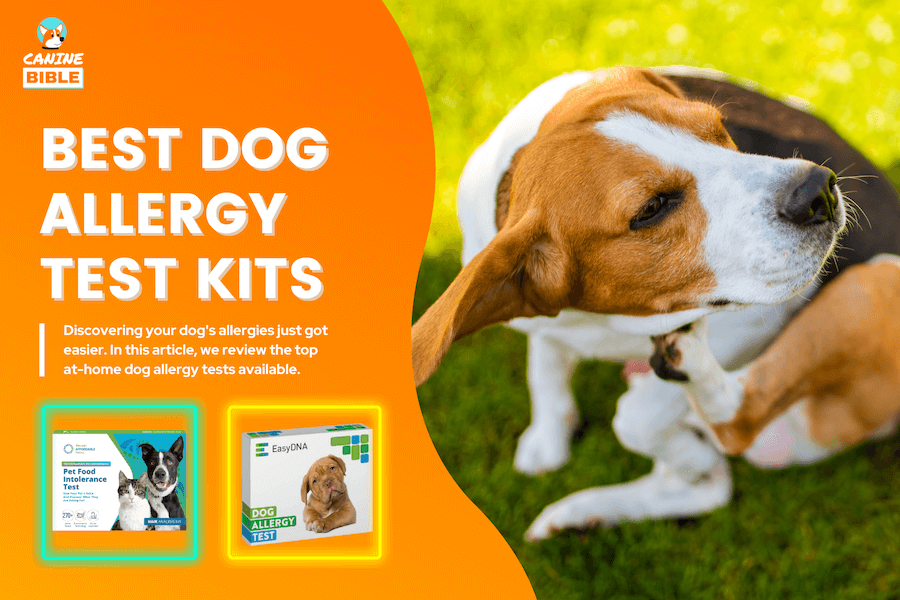

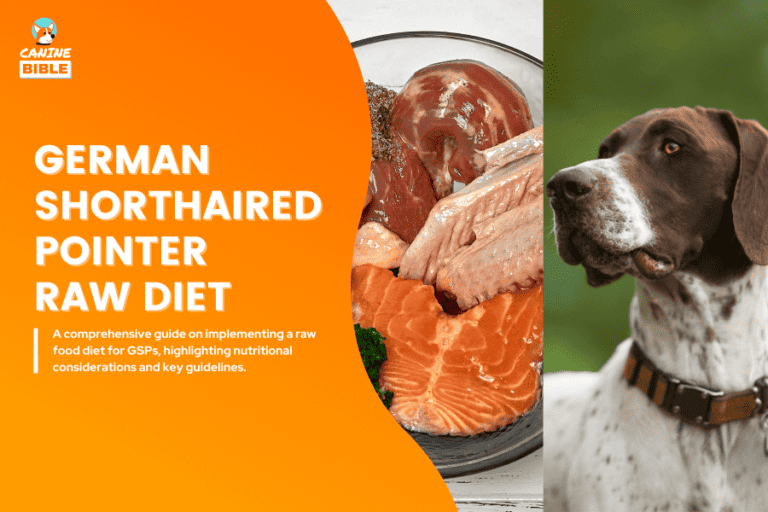
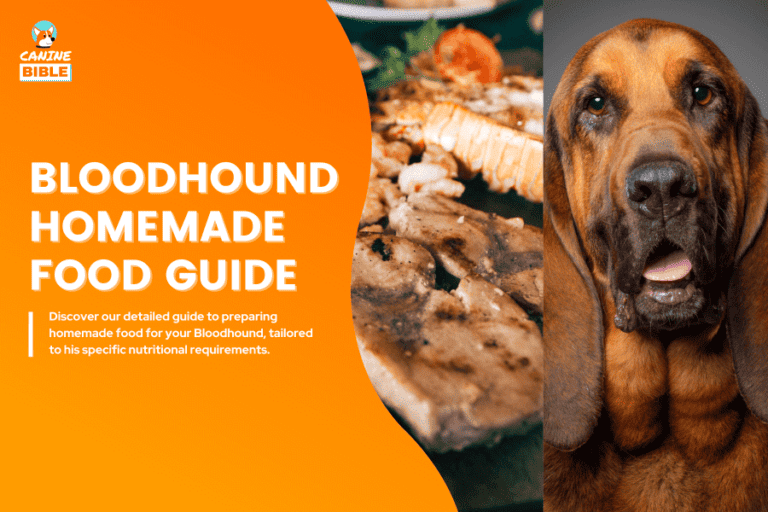
![Best Shih Tzu Homemade Dog Food Recipes: Puppy & Adult [Guide]](https://www.caninebible.com/wp-content/uploads/2023/08/Shih-Tzu-Homemade-Dog-Food-1-768x512.png)
